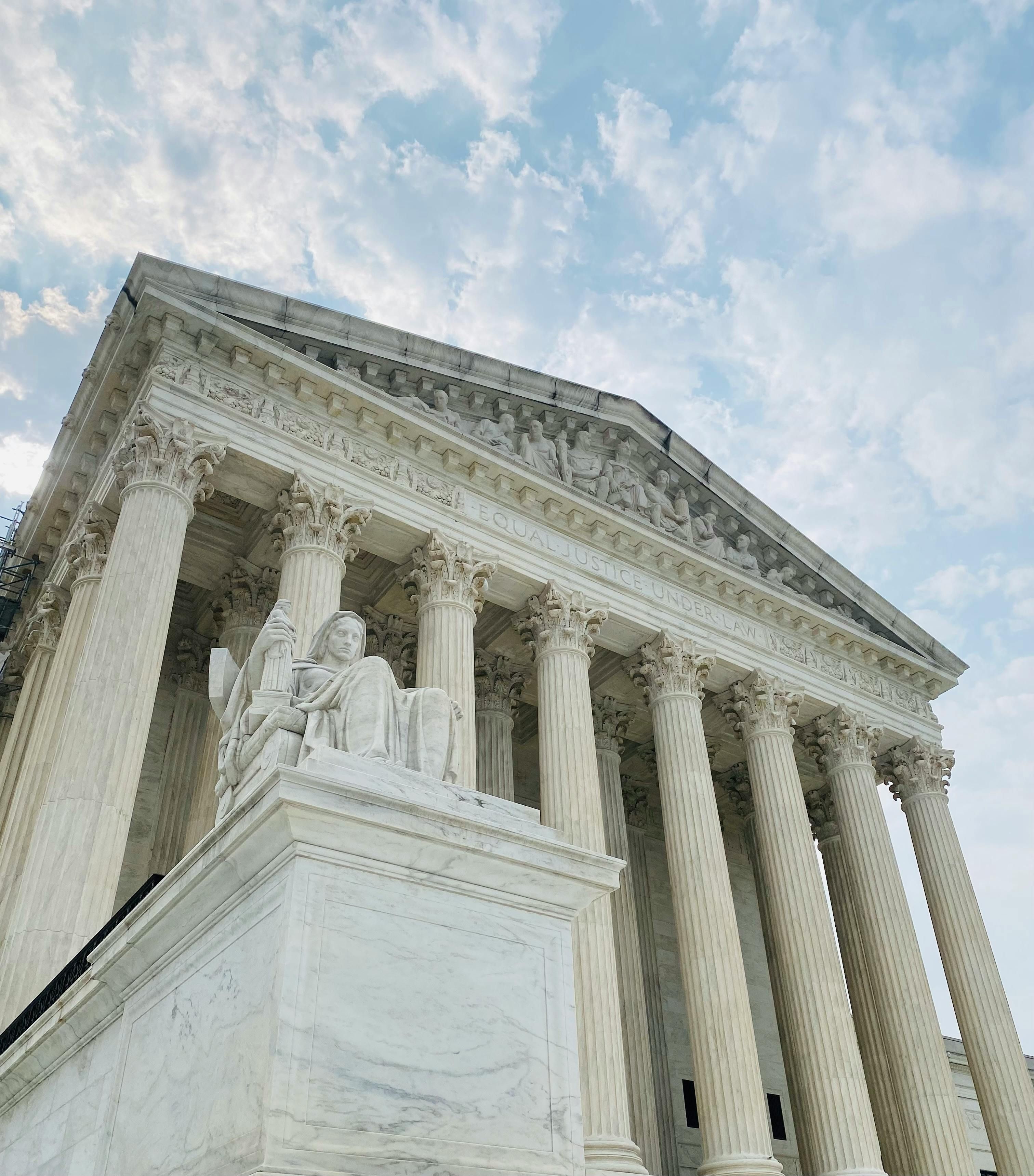Ruling on Alien Enemies Act Triggers fresh concerns over fair trial proceedings for immigrants
In a move that's causing a storm of controversy, the Supreme Court has given President Donald Trump the green light to use an ancient war-time law to speedily deport immigrants labeled as "enemies." Critics argue this decision could strip migrants of their fundamental rights to legal review before being whisked off to foreign prisons.
This 5-4 ruling Monday night means individuals challenging Trump's use of the Alien Enemies Act need to rely on a complex legal process known as habeas corpus, and potentially file these appeals in some of the most conservative federal courts in the land.
But the opacity surrounding how those facing deportation under the 1798 law will be informed and provided access to legal help adds fuel to claims that the Trump targets under the act may not truly receive the promised due process.
Elora Mukherjee, director of the Immigrants' Rights Clinic at Columbia Law School, sums it up bluntly: "These are extremely significant barriers."
Despite this, Attorney General Pam Bondi told Fox News on Tuesday that winning these habeas challenges wouldn't be much trouble for the Justice Department. "It will be a much faster hearing," Bondi said. "It will be a much smoother, simpler hearing and these people will be deported."
The Trump administration's disregard for due process has been a hallmark in legal battles over its immigration policies. For instance, in another case pending at the Supreme Court, the administration acknowledged it had erred in deporting Kilmar Armando Abrego Garcia to El Salvador last month. Yet, they're battling tooth and nail to keep him there.
Chief Justice John Roberts temporarily delayed a Monday midnight deadline for Abrego Garcia's return to the U.S. in order to assess the case. The administration alleges that Abrego Garcia is a high-ranking member of the MS-13 gang, a claim seemingly based on information from a "reliable source."
Immigration groups have raised questions about others deported to El Salvador based on claims they are members of the Tren de Aragua gang. Some claim they were misdiagnosed due to their tattoos.
Heidi Altman, vice president of policy at the National Immigration Law Center, points out that the practical implications of the court's Alien Enemies Act ruling are significant given the difficulty detainees face in accessing lawyers. And she believes the ruling reads as if it was written by someone disconnected from reality.
"They're being handed exactly what they want," Altman said of the Trump administration. "The very quick erosion of checks and balances."
The Supreme Court granted the Trump administration's request, lifting a lower court order that blocked immigration officials from relying on the Alien Enemies Act to remove alleged Venezuelan gang members. However, the court stressed that everyone subject to removal under the act is entitled to "an opportunity to challenge their removal."
While this was a significant rebuke of the Trump administration, which hadn't previously offered notice or review before swiftly deporting hundreds of Venezuelan nationals, a majority of the court dramatically limited the practical options.
Groups like the American Civil Liberties Union tried to shut down deportations under the act en masse using a federal law outlining how administrations implement regulations. But now, each individual may have to file their own habeas claim and demonstrate the government's attempt to deport them is illegal.
Filing successful habeas claims can be challenging, especially in the face of conservative courts in Texas. Remember, years after the 2001 terrorist attacks, the Supreme Court made it clear that detainees at Guantanamo Bay could challenge their detention through habeas petitions. However, that process quickly stagnated in lower courts.
The real question, according to Steve Vladeck, a Supreme Court analyst and professor at Georgetown University Law Center, is whether courts, especially federal courts in Texas, will provide the robust pre-removal process promised in the Supreme Court's opinion.
Dissenting on Monday, Justice Sonia Sotomayor cautioned that requiring Venezuelan nationals to file individual habeas suits "may have life or death consequences."
On the flip side, a 2022 Supreme Court decision may limit immigration groups' ability to file lawsuits on behalf of all potential deportees, making each person's case an individual battle.
Kathleen Bush-Joseph, a policy analyst at the Migration Policy Institute, points out that the majority of people facing immigration court proceedings don't have attorneys. And even if they can afford one, navigating the complexities of these cases can be challenging, as it's often unclear where ICE is holding a detainee.
While the Supreme Court's decision requires the government to provide detainees with notice that they may be deported under the Alien Enemies Act, Altman notes that similar notifications have historically been vague. Given language barriers and the lack of lawyers, fighting the law through habeas claims will be a tough challenge.
The American Civil Liberties Union responded to the Supreme Court's decision with a habeas lawsuit filed in federal court in New York on Tuesday, aiming to block deportations for their clients and others potentially facing deportation under the law. The ACLU lawsuit also sought to certify a class that would cover anyone subject to deportation under the Alien Enemies Act.
The ACLU argues the law "has only ever been a power invoked in time of war, and plainly only applies to warlike actions." It asserts that it cannot be used against nationals of a country like Venezuela with which the U.S. is not technically at war.
Enrichment Data:
- The Alien Enemies Act, invoked by the Trump administration, is a historical law dating back to 1798, allowing the president to take control of the property of "enemy aliens" during times of war or warlike hostility and deport them.
- The Trump administration wrestled with Congress over the move to use the Alien Enemies Act, as some argued it violated the time limits outlined in the Nationality Act. The administration asserted that the act is not subject to the same limitations due to its historical precedent.
- The Supreme Court's decision has been described as a victory for the administration, as it allows for the swift deportation of alleged Venezuelan gang members. However, it also ensures that affected individuals retain some form of due process, including the right to challenge their removal.
- It's worth noting that the Trump administration hasn't just targeted Venezuela in this fashion. Previously, the administration has tried to use the Act to target enemies of the state, such as Iranian citizens and nationals of other countries viewed as adversaries.
- The ruling on the Alien Enemies Act, dating back to 1798, allows the Trump administration to potentially speedily deport individuals labeled as "enemies."
- In the case of Kilmar Armando Abrego Garcia, who was deported to El Salvador last month, the Trump administration is battling to keep him there despite acknowledging an error in the process.
- The Supreme Court's decision on the Alien Enemies Act has led to each individual potentially facing deportation having to file their own habeas claim to demonstrate the government's attempt to deport them is illegal, a challenge given the complexity of these cases and the difficulty detainees face in accessing legal help.








